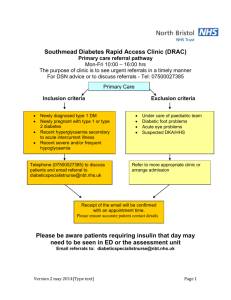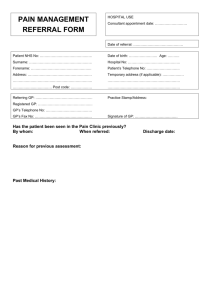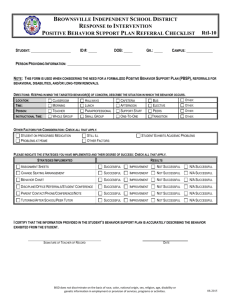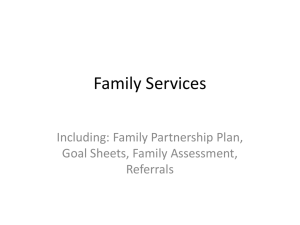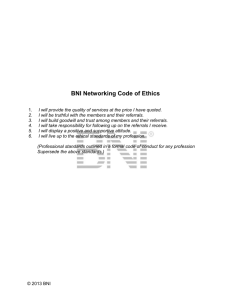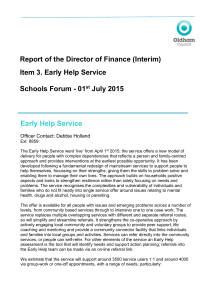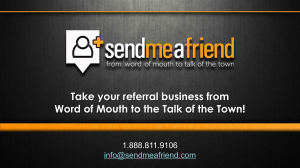How NOT to Ask for Referrals
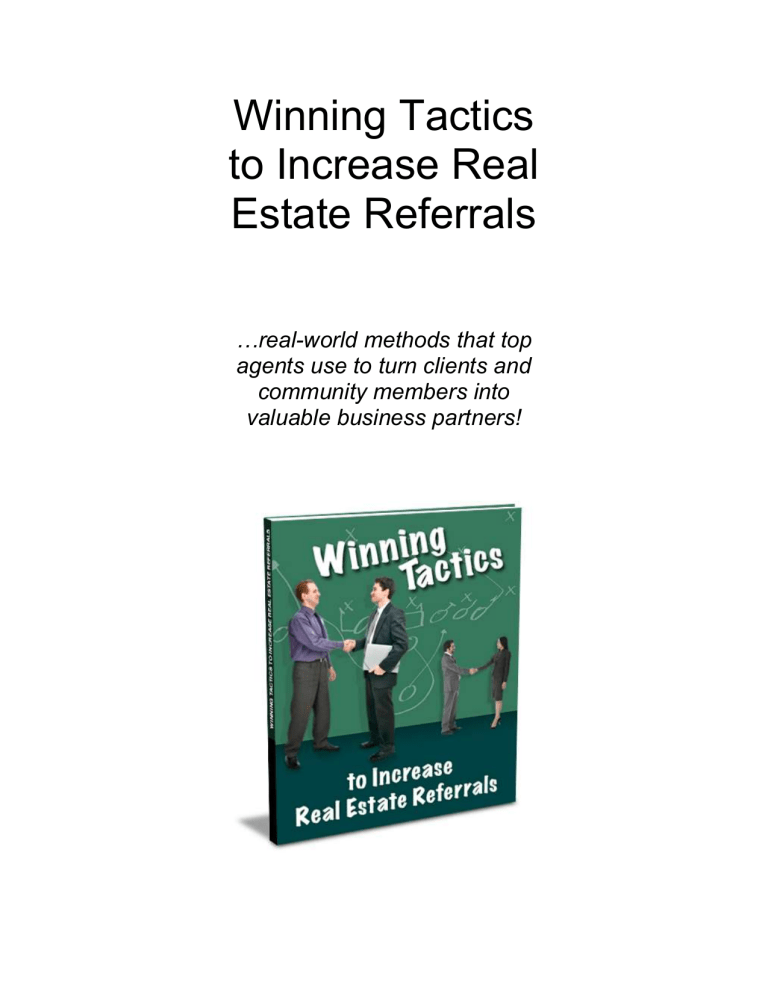
Winning Tactics to Increase Real
Estate Referrals
…real-world methods that top agents use to turn clients and community members into valuable business partners!
What This Book Will Teach You
This eBook will show you why referrals are the best type of new clients to have, and why getting them is the best way to grow your clientele. Moreover, it will offer suggestions on how to get referrals without asking for them. It will also provide some great ideas for opportunities and methods that ask for referrals without literally asking for them (i.e. simple systems you can develop that do the asking for you).
It will also teach you how (and when!) to comfortably ask your existing clients for referrals, highlighting certain points in the sales process that provide perfect opportunities for a natural request for referrals.
You will also learn the important difference between a client-centered mindset and an agent-centered mindset. You will learn, in other words, how NOT to ask for referrals.
Finally, the book wil l touch on the value of “hyper local blogging” to grow your personal sphere of influence and increase local market and relocation referrals.
Leads vs. Referrals:
Why You Want Referrals & Why They’re Your Top
Priority
Leads are simply names, (and possibly a phone number) of someone who could be interested, not qualified in any way. They are just prospects. With leads, it is crucial to respond as fast as possible to an inquiry (often by phone), since they have no context for choosing you as an agent, other than a desire for more information. Speed of response is one of the number one factors in converting a regular lead into a client.
Now referrals are recommendations by a friend or colleague. Naturally, they represent top-priority people to follow-up with in a personalized manner.
Remember: When someone refers a potential client to you, you’re not only managing your own reputation, but the reputation of the person who referred you.
For example, if Frank recommends you to Susie, and for any reason you don’t give Susie the level of service Frank has described, not only do you look bad, but you make Frank look bad to Susie for recommending you . Not only may you lose Susie as a client, but you might just lose Frank, too. So keep in mind:
Referrals are your top priority clients.
If you have gotten a referral from a current or recent client, you can assume a few things:
the client was pleased with your services
she/he thinks highly enough of you to direct her/his friends and family to you
the new, referred client has a high probability of being similar to the current client.
Of course you want referrals, because they’re far more qualified than just a lead… your client has vouched for you, and you know the referral is actively looking for an agent. The good news is, you have a slight edge on the competition thanks to the personal endorsement of your current or recent client.
Referral + referral + referral = The ideal method for growing your clientele.
People you know referring people to you who they know creates a valued, esteemed collective of quality clients, with whom you, the agent, can build strong, life long relationships, one person at a time. A network of referrals can lead to steady business growth and deep roots in your market.
Four Effective Referral Systems
Many of us don’t like to ask for referrals… maybe we feel like we’re imposing, maybe we don’t like to feel dependent or beholden. And a few clients will refer without being prompted. Unfortunately though, most won’t think to do so. But there are ways to get referrals without directly asking for them.
Please note that in some states (Illinois, for example), you may be expressly prohibited from paying a non-licensed person for a referral. Before you consider any direct “pay-for-referral” system, you should first find out if it is legal in your state. A discussion with your broker and/or your state’s real estate commission office is the best way to go. Here are four tried-and-true systems that do the asking for you:
Referral System 1: Related Business Incentive Programs
Make a list of people or businesses that work on houses. For instance, think of housing inspectors, insurance agents, contractors, handymen, electricians, and house painters.
Now create a referral program that pays referral fees for people who are sent by one of your referral partners. How you approach people with this system is very important:
1. First, work with the network of people you’ve interacted with in the past. This is far more successful than cold-calling people in related businesses.
2. Next, determine what sort of referral compensation you would feel comfortable offering. Ideas include: Reciprocal referrals for people seeking related services, gif t cards, or donations to the referrer’s favorite charity (on their behalf).
3. Finally, ask prospective partners something along the lines of the following: “[NAME], as you probably know, my business depends heavily on referrals. Would you feel comfortable recommending my services to people you work with from time to time? You may not know it, but I’m happy to compensate people who send me referrals… but only if you feel comfortable doing so.”
Referral System 2: Charity Drive Partnership
Often people who donate to charity are regular donors, and they do so each year in advance of a specific charity drive. The executive sponsor or director of the charity drive often has a list of regular donors which they will receive donations for on their next drive. These donors can be an excellent source of referrals, provided you can connect with their passion for their charity.
What you might try is approaching the director of the charity drive and propose that for every referral you receive from their donors that results in a sale, you will donate a percentage (or fixed amount) from the sale to the charity in their name.
Ideally, the director of the charity drive would be willing to announce your offer in advance to donors on the list. Not onl y is this great free advertising, but it’s also a way to tie your services to a cause prospective clients feel passionate about.
Referral System 3: Activate Your “Pulse of the Community” Contacts
Often, one of your biggest challenges is finding an appropriate time to let people know that you’re a real estate agent. It’s completely unnatural to start conversations with strangers by saying, “Hi, did you know I’m a real estate expert?” Awkward!
There are, however, people in your local community who frequently have longer, casual conversations with their clients —especially barbers, stylists, estheticians, wait staff and bartenders. These people know who’s undergoing life changes such as new babies, marriages, divorces, relocations, and more…. exactly the type of people who are often looking for the services of a real estate professional.
Approach the local merchants you know who have these relationships with their clients and ask them if they would be comfortable referring clients to you. Often, if your relationship with them is strong, they will do so for free (provided you give them cards to hand out). In some cases, you may gauge when it’s appropriate to offer incentives similar to Referral System #1.
Referral System 4: The Personal Thank You Note
It might seem obvious, but you’d be shocked how powerful this system is and how many people overlook it. People love to get personal mail, and appreciate a personal touch.
The key to making this work for you is to be systematic about your approach. First and foremost, to make this system work it must be fun and easy to send off thank you notes.
If it’s not something you can sit down and do with relatively little effort on a Sunday afternoon, you won’t stay on top of it.
In order to make this work, consider the following approach:
1. Get your materials together. Purchase or have printed personal stationary for sending thank you notes. A 4x6 shape with accompanying envelope is plenty
—you’re not writing a love letter! If you have custom stationary printed, consider adding a small, tastefully designed line of text somewhere along the bottom or back of the card which says, “If you know anyone who might benefit from my services, I always appreciate the referral.” Having your contact information on the card is a good idea, too.
2. Make sure you have everything you need to write and send your notes in one sitting
—this includes the notes with envelopes, stamps, return address labels, and reliable pens (yes, these should be hand written!)
3. Your goal is to send a thank you note within one week of your meeting / contact with the prospective referrer. While it might not be practical to stop what you’re doing and immediately write a thank you note, you must make a quick note to yourself to write the person a thank you note. The reminder should include: 1) When/where you met the person (context), 2)
What you talked about, 3) Any follow-up you need to do beyond the thank you note. Sending yourself email, voice mail, or using a voice recorder
(many smart phones can now record voice memos) will make this relatively painless.
4. Block out some free time when you can sit down and handle all (or most of) your thank you notes at one time. It’s a great way to multitask during television commercials or sporting events. Referring to your own notes, you’re going to write short, personal cards to all of your recent meeting participants. For example:
“Dear [NAME], I enjoyed spending some time with you [WHEN/WHERE], discussing [TOPIC]. Thank you for your time, I appreciate it. Hopefully we can get toge ther again soon. Sincerely, [YOUR NAME].”
The goodwill this system generates will astonish you. And that goodwill directly boosts your likelihood of getting referrals.
How to Ask for Referrals: Timing is Everything
Any salesperson will tell you: You can’t receive what you don’t ask for. Here are four ideal situations where you can ask for referrals, and like so many things, they’re all about timing.
#1: Prior to the Sale at the Listing Interview
A surprisingly easy time to ask for a referral is doing so as you are in fact selling them on your skills and exceptional service, during the listing interview. Try a version of these words: “Bottom line, my goal is to delight you with my service and make sure you’re happy with the sales price of your home. In fact, I’ll know it’s been a real success if you feel comfortable sending me referrals. That’s the best way for my business to grow.” Finish with a clear question: “If you end up pleased with my service, would you refer me to your family and friends?”
#2: During Your Sales Cycle
Once the client begins to see the fruit of your labors, ask him directly for referrals.
Here’s a sample script to use as a model: “Congratulations, your loan was approved today. Now you can really start preparing for the move. By the way, can I ask you something? Now that you’ve seen how I work and the results I get, would you be willing to send me any referrals, people you know who are planning to sell, buy, or lease real estate?”
Again, close with a direct question. “Do you know of anyo ne that may be in need of my services right now?”
#3: Immediately after you’ve just closed a transaction on your client’s behalf
The first situation, immediately after closing a transaction for a client, is a moment when everyone involved feels great
– any difficulties along the way are forgotten, as well as any personal differences you may have experienced with the client. Make sure to use the moment wisely.
Invite the client out to a celebratory meal, then sometime during the feel-good meal, say something like this: “I really enjoyed working with you, and I would love to work with other people just like you. Do you know anyone who may be looking to buy, sell, or lease real estate in the future?”
In a similar scenario, you could choose to give them a gift certificate for one of the nicer restaurants in town. As you’re giving the certificate, ask the above question. If you’ve timed your moment well, you have a great chance of getting your referral.
#4: Immediately after a client has backed out of closing a transaction
In this situation, the client may be feeling guilty for wasting everyone’s time.
Again, offer to take them out to lunch or dinner, to show there are no hard
feelings. At the meal, or even right after inviting them out, say a version of the following:
“I understand that this transaction wasn’t right for you, and it’s most important that we do what’s in your best interest. But I would like to ask one favor of you.
If there is someone you know who plans to buy or sell real estate in the future, could you introduce us so that I could start building a relationship with them and possibly represent them?”
If you have set the right tone and picked the right moment, your client is going to want to help you, and a referral is likely.
Three More Great Opportunities to Ask for Referrals
Asking for referrals on all your marketing materials
Just as we mentioned in the “Thank You Note Referral System,” add an equivalent of the following brief phrase to the back of your business cards, to your email signatures, and to your brochures: “The highest compliment our customers can give us is to recommend us to a friend. We appreciate your referrals!”
Update everyone who has sent you a referral
People love to be appreciated. Whenever you do get a referral, thank the person who gave it to you and keep them updated. Call them and say, “I so appreciate the referral! I want to give you a quick update on how that’s going. But first, I want to ask how (insert wife’s name, and any kids too) is doing? And how’s the new job?”
Call again with another update once the sale is complete. Continue to show interest in people who send you business, and they’ll send even more, just because you showed you cared!
Follow up after the sale
Post-sale following up is a great idea. It keeps the relationships warm, and lets your clients know that you’re interested in their well being, not just their money. It also makes it easier to ask for referrals later on. Two weeks after the close, call to ask how the move went, and if they’re settling in all right, and if there’s anything you can help them with. Tell them you’ll phone again in about a month, to see if you can do anything else. This is also a great opportunity to refer your client to any of the small business people in the community who have referred clients your way.
When you do call in a month, this time, ask for referrals: “I know we did an excellent job for you, and I’m hoping you’ll refer us to your friends who plan on buying or selling real estate in the future. Do you know anyone like that?”
Believe it or not, many homebuyers and sellers complain that they never hear from their agent once the transaction is complete. To abandon your clients after the closing is short-sighted. You must keep in touch with your former clients and check in to see if they know of anyone else you might help. Any favor you can pay them after the sale will plant the seeds of goodwill long into the future.
Remember: Many successful people have learned that it’s regarded as a sign of high self-esteem to ask for he lp. Yet so many of us don’t. If you’ve provided your client with excellent service, if you’ve done well financially for them, and if they trust and like you, they will probably be happy to help. But you have to ask
first!
Other Opportunities to Reinforce the Request for Referrals
Add a referral line to your email signature line.
Add a referral comment to the back of your business cards.
Offer a gas card for all referrals that actually sign with you.
Add a banner or link to a form on the home page of your website.
Send out a monthly (or even every two months) Marketing & Trends
Report to your database of clients. Include a referral message.
Send a $10 gift card for your favorite local café during the holidays, and mail them out to all clients past and present, to keep your name in their minds. We all love a free latte! Include a referral message at the bottom of the holiday card holding the gift card.
The Carefully Worded Referral Clause
Some real estate professionals have begun to think it’s more effective to have clients think about providing referrals right up front. One way to do that is to put a clause in your proposals & contracts about referrals. An example of one such clause might look is:
“Upon successful completion of work, Client agrees to have a discussion with
Agent about possible referrals, and use best efforts to identify at least two potential referrals who might benefit from Agent’s services.”
A clause such as this does a few things for you:
It’s a very confident, unique clause, so the client is likely to think of you as a confident, unique service provider. They will realize that you are in this for the long haul. They will feel confident that you have more than a mere short-term financial gain interest in doing a superb job for them.
Secondly, it introduces the idea of referrals right away, which is always a good thing. Most clients can’t come up with a referral at the drop of a hat; it takes a while. The sooner the notion is introduced, the easier it will be for the client to come up with a friend who might be in need of your services.
Thirdly, it absolves you from asking for referrals as if that were a favor.
You can simply remind the client when signing all the requisite forms, papers & contracts of the referral clause, and use that as a chance to get right into a discussion.
This technique is hotly debated with agents who feel it’s “too pushy.” But here’s the point: If the client wants to decline the clause, or even has a problem with it, simply negate it. Just make sure to explain why it was there in the first place.
“I’m looking to exceed your expectations, not just for the money, but so that you are confident enough in me to recommend me to your friends. My goal is to become a Referra ls Only business.”
Clients might then feel not as if they’d been legally forced into helping you, but will appreciate your intent and will keep referrals in mind, regardless of the outcome of the clause. Your goal here is to have the conversation about referrals as soon as possible.
How NOT to Ask for Referrals
The most important take away about this point is in understanding the difference between the client-centered mindset and the agent-centered mindset . The client-centered mindset thinks in terms of wha t’s best for the client.
Position your requests for referrals in terms of how you can help your client and the people he knows, not in terms of how they can help you.
Here’s one example of one such request:
“You had mentioned that your father is retiring soon and that he’s been wondering if his current home is too much upkeep for him and your mother. I have helped a number of recently retired clients over the past few years, and helped them downsize to a new home with much less upkeep but that still felt spacious enough. I think I may be able to answer some of his questions and put his mind at ease. Would you like to talk to him about setting up a time for the three of us to get together?”
Do you see how the above example request is client-centered, as opposed to agent-centered? It positions the agent as someone who is:
1. thinking about the client’s problems, and
2. offering a solution to that problem.
It makes the agent seem like a potenti al hero, rather than an extortionist, i.e., “I did all this for you, now you have to do this for me. Where are my referrals?”
Take a moment to think of all of your recent clients
—specifically the stresses they had on their mind during the transaction. Ask yourself these two questions:
1. What were their “pain points” with family, work, or friends?
2. Is there any way you can have a hand in alleviating some of that pain?
Of course you can’t be the cure-all for your clients’ troubles. But this exercise will make you more aware of opportunities to be the sort of agent that is frequently referred versus one that is seldom thought of at all.
Everything you ask of your client should come from this client-centered perspective.
Indirect Referrals through “Hyperlocal Blogging”
“Hyperlocal blogging” is the act of writing a blog specifically focused on a narrow geographical area. Usually hyperlocal bloggers focus on a particular neighborhood within a city. So, for example, a blog about “Atlanta” isn’t really h yperlocal, but a blog about “Little Five Points” within Atlanta would be.
One strategy real estate agents use to build their website is to focus on the particular details of their neighborhoods. This is an extremely successful tactic when you consider the number of people who may be looking to relocate to your market. By blogging about specific features within the neighborhoods in your market, you can become a trusted source for information —a great way to begin building a relationship with prospective clients. But how does this add up to referrals?
Blogging about the neighborhoods you know personally is an excellent method of making people in the community aware of your expertise as a
real estate agent. You do so by featuring the local businesses and people who make the neighborhood an attractive place for buyers. In addition to the amenities you may feature in photos, videos, and short articles, you can also feature the people who run the businesses
—i.e. local community members.
You feature businesses and co mmunity members, and you let them know you’ve featured them on your hyperlocal blog. They, in turn, appreciate the free publicity and also recognize you as an agent with a special interest in the local community. Now when it comes to recommending an agent, who do you think these business owners and community members will think of first?
You. The neighborhood expert.
Now You Know!
So now you have a fresh set of ideas for encouraging past clients and community members to refer business your way. Hopefully the systems and tactics here have opened your eyes (or at least reminded you!) that you can do something about the number of referrals you receive each year.
I hope this valuable information furthers your real estate business, allowing you to attract the new business that will lead you toward a profitable future.
